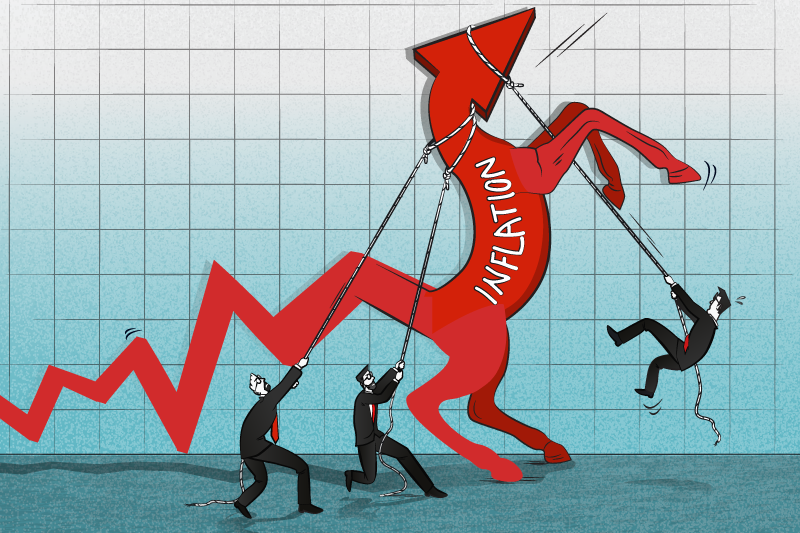June 02, 2023

Inflation is impacting all of us these days. And nowhere are the effects of inflation more apparent than in the manufacturing industry. According to an October 2022 article by Forbes discussing the impacts of inflation on global supply chains, “inflation [has driven] up direct costs for materials, labor, energy, and transportation, making it more costly to manufacture, store, and ship goods.”
As prices rise for raw materials, transportation, and labor, manufacturers must proactively adapt to these challenges. One effective approach to mitigate the effects of inflation is through the implementation of a robust supply chain management (SCM) strategy. By optimizing their supply chain processes, manufacturers can gain better control over costs, improve efficiency, and maintain competitive pricing in a challenging economic environment.
Here are some key tactics manufacturers can employ to combat inflation with a savvy supply chain management strategy.
Strengthen Supplier Relationships
Maintaining strong relationships with suppliers is crucial in combating inflation. Collaborative partnerships enable manufacturers to negotiate better pricing, secure reliable access to materials, and gain early insights into market trends. Establishing long-term contracts or agreements with suppliers can provide stability in pricing, mitigating the risk of sudden price increases. Additionally, manufacturers should consider diversifying their supplier base to reduce dependence on a single source and ensure continuity of supply
Enhance Demand Forecasting
Accurate demand forecasting is essential for effective supply chain management. By leveraging historical data, market trends, and customer insights, manufacturers can anticipate changes in demand patterns and adjust their production accordingly. Improved forecasting minimizes the risk of excess inventory or shortages, reducing the impact of price fluctuations. Manufacturers can also utilize advanced analytics and machine learning algorithms to enhance demand forecasting accuracy, enabling them to optimize production and procurement decisions.
Implement Lean Manufacturing Practices
Adopting lean manufacturing principles helps manufacturers streamline their operations, eliminate waste, and improve efficiency. By identifying and reducing non-value-added activities, manufacturers can optimize resource allocation, minimize costs, and maintain competitive pricing despite inflationary pressures. Lean practices such as just-in-time (JIT) inventory management, continuous process improvement, and efficient production scheduling enable manufacturers to respond swiftly to changes in demand, reducing inventory carrying costs and avoiding excessive price hikes.
Embrace Technology and Automation
Incorporating technology and automation into the supply chain can significantly enhance efficiency and cost-effectiveness. Manufacturers can leverage technologies such as enterprise resource planning (ERP) systems, warehouse management systems (WMS), and transportation management systems (TMS) to optimize inventory levels, streamline order processing, and improve logistics operations. Automation of repetitive tasks, such as data entry or material handling, reduces labor costs, minimizes errors, and frees up human resources for higher-value activities.
Collaborate with Logistics Partners
Efficient logistics and transportation management play a vital role in combating inflation. Collaborating with reliable logistics partners can help manufacturers optimize freight costs, reduce lead times, and ensure timely delivery of goods. By utilizing freight optimization software, route planning tools, and tracking systems, manufacturers can identify cost-effective transportation options and minimize disruptions. Strong partnerships with logistics providers can provide manufacturers with greater visibility into the supply chain, allowing them to make informed decisions and respond proactively to market fluctuations.
Inflationary pressures pose challenges for manufacturers, but by implementing an effective supply chain management strategy, they can mitigate the impact and maintain competitiveness. Strengthening supplier relationships, enhancing demand forecasting, embracing lean manufacturing practices, leveraging technology and automation, and collaborating with logistics partners are all key tactics that can help combat inflation. By proactively optimizing their supply chain operations, manufacturers can better control costs, improve efficiency, and adapt to changing market conditions, ultimately ensuring long-term success in an inflationary environment.


